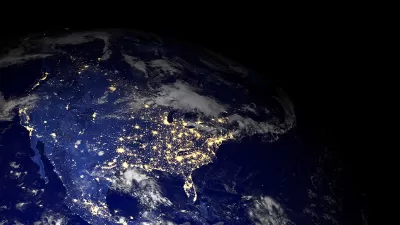People have had to take it on faith that data anoymization was adequate to the task of protecting privacy of individuals. Recent research suggests such faith was misplaced.

Researchers from Université catholique de Louvain in Belgium and Imperial College London have debunked the notion that data can be anonymized as promised by tech companies.
"Using machine learning, the researchers developed a system to estimate the likelihood that a specific person could be re-identified from an anonymized data set containing demographic characteristics," according to an article by Nick Wells and Leslie Picker. "The researchers’ model suggests that over 99% of Americans could be correctly re-identified from any dataset using 15 demographic attributes, including age, gender and marital status."
The research was published in the journal Nature Communications, and as part of the effort, the researchers, "published an online tool to help people understand how likely it is for them to be re-identified, based on just three common demographic characteristics: gender, birth date and ZIP code."
A quote from Yves-Alexandre de Montjoye, one of the researchers, sums up the problem inherent to the study's findings, and the implications for fields like planning, where big data has promised large benefits to society: "The goal of anonymization is so we can use data to benefit society," said Montjoye. "This is extremely important but should not and does not have to happen at the expense of people’s privacy."
FULL STORY: ‘Anonymous’ data might not be so anonymous, study shows

Maui's Vacation Rental Debate Turns Ugly
Verbal attacks, misinformation campaigns and fistfights plague a high-stakes debate to convert thousands of vacation rentals into long-term housing.

Planetizen Federal Action Tracker
A weekly monitor of how Trump’s orders and actions are impacting planners and planning in America.

In Urban Planning, AI Prompting Could be the New Design Thinking
Creativity has long been key to great urban design. What if we see AI as our new creative partner?

King County Supportive Housing Program Offers Hope for Unhoused Residents
The county is taking a ‘Housing First’ approach that prioritizes getting people into housing, then offering wraparound supportive services.

Researchers Use AI to Get Clearer Picture of US Housing
Analysts are using artificial intelligence to supercharge their research by allowing them to comb through data faster. Though these AI tools can be error prone, they save time and housing researchers are optimistic about the future.

Making Shared Micromobility More Inclusive
Cities and shared mobility system operators can do more to include people with disabilities in planning and operations, per a new report.
Urban Design for Planners 1: Software Tools
This six-course series explores essential urban design concepts using open source software and equips planners with the tools they need to participate fully in the urban design process.
Planning for Universal Design
Learn the tools for implementing Universal Design in planning regulations.
planning NEXT
Appalachian Highlands Housing Partners
Mpact (founded as Rail~Volution)
City of Camden Redevelopment Agency
City of Astoria
City of Portland
City of Laramie





























